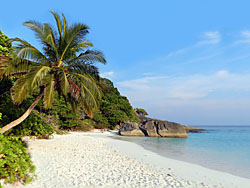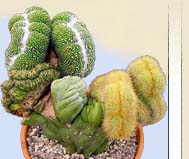Indoor
Floriculture

Leafy succulents
by Peter Lapshin

Cacti Library
'Cultivar' (V.Kalishev)

Moscow
Succulent Society

Moscow Indoor
Plant Club

Travels, nature,
botanical gardens

About Episcia
(Gesneriaceae)
 |
 |
CULTIVAR / КУЛЬТИВАР e-Magazine about exotic forms of Cactaceae ENGLISH / RUS-(Win1251) | |||
|
|
|

|
BROMELIADS OF THE CERRADO Yuri A. Yudin (NH, USA)
In issue 1(17) we introduced you to the work of Eddie Esteves Pereira of Brazil. The website of his research group is dedicated to the diverse flora of Cerrado * and Caatinga **. Eddie and his team pay special attention to the issues of protecting Brazilian flora and fauna, which suffers from economical activity. Today we continue our story and will show you marvelous Brazilian succulents of the Bromeliaceae family – Bromelia, Dyckia, Encholirium and Orthophytum.
"Since 1973, the time when Esteves began his work with cacti, he found it necessary also to pay attention to bromeliads, which grow together with cacti in the same habitats. Today, we are also involved intensively in the bromeliads of the Cerrado, where hundreds, quite often endemic species, live in different ecosystems. During these last three decades, we became witnesses of the destruction of Bromeliad habitats through indiscriminate and uncontrolled deforestation. With increasing speed, species and populations are led to extinction.
On this homepage we would like to focus on xerophytic and semi-succulent genera like Bromelia, Dyckia, Encholirium and Orthophytum . Some fruits of our research are the publications of several new taxa, and not too far away in future there will be some books, dedicated exclusively to these plants of the Cerrado. Our travels led us through sandy plateaus, to hot rocky Campos rupestres *** and to the scrubland of the Cerrado, always pervaded by the most exciting, exuberant and exotic bromeliads…"
*Cerrado – a local name of Brazilian savanna, in this context – the name of ecosystem. **Сaatinga – word of Indian origin, which means "white forest" and describes the naked deciduous forest in dry period. It is a name of the Brazilian ecosystem occupying 850,000 sq. km. It consists of deciduous forest and thorny bushwood, well adapted to irregular precipitations and dry climate of North-Eastern Brazil. ***Campos rupestre literally means "rock fields", but in this context represents a type of vegetation which accompanies this unique habitat type. These shrubby savanna habitats occur at the elevations between 700 and 2000 m. This ecoregion is noted for a high degree of endemism, i.e. exclusivity at both genus and species levels.
|
| Cultivar e-magazin: Copyright (c) by Valery Kalishev, Chelyabinsk, Russia, since 2000. Design and hosting by Peter Lapshin, since 2002. Contacts: Peter Lapshin |
|
|